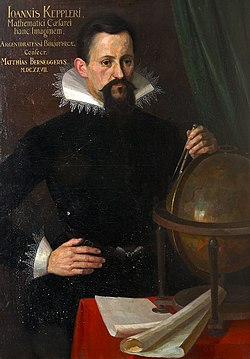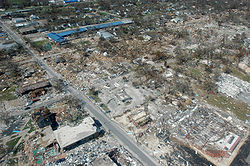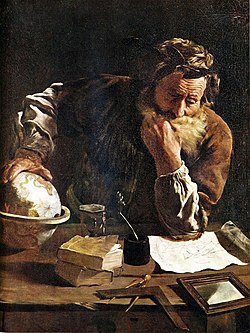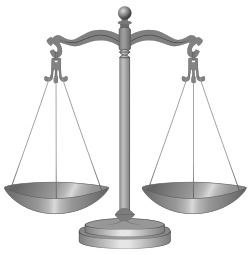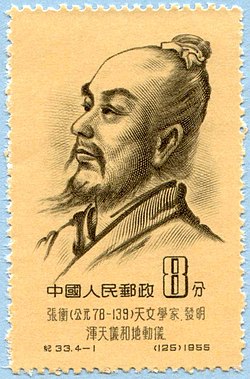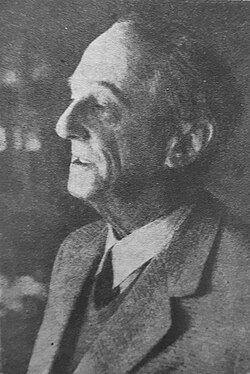Portal:Mathematics
The Mathematics Portal
Mathematics is the study of representing and reasoning about abstract objects (such as numbers, points, spaces, sets, structures, and games). Mathematics is used throughout the world as an essential tool in many fields, including natural science, engineering, medicine, and the social sciences. Applied mathematics, the branch of mathematics concerned with application of mathematical knowledge to other fields, inspires and makes use of new mathematical discoveries and sometimes leads to the development of entirely new mathematical disciplines, such as statistics and game theory. Mathematicians also engage in pure mathematics, or mathematics for its own sake, without having any application in mind. There is no clear line separating pure and applied mathematics, and practical applications for what began as pure mathematics are often discovered. (Full article...)
Featured articles –
Selected image –
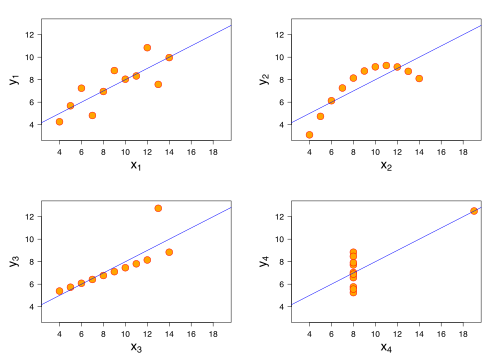
Good articles –
Did you know (auto-generated) –

- ... that "Good Old Neon" uses mathematical logic as a metaphor for what dying feels like?
- ... that more than 60 scientific papers authored by mathematician Paul Erdős were published posthumously?
- ... that the first volume of Felix Klein's books on the history of mathematics does not mention the three women who originally transcribed his lectures?
- ... that people in Madagascar perform algebra on tree seeds in order to tell the future?
- ... that Olympic historians were unconvinced by speculation that an unknown boy coxswain grew up to be a renowned Georgian mathematician?
- ... that Hannah Fry used mathematics to compare Elizabeth II's Christmas messages with the lyrics of Snoop Dogg?
- ... that Fathimath Dheema Ali is the first Olympic qualifier from the Maldives?
- ... that Kit Nascimento, a spokesperson for the government of Guyana during the aftermath of Jonestown, disagrees with current proposals to open the former Jonestown site as a tourist attraction?
More did you know –

- ...properties of Pascal's triangle have application in many fields of mathematics including combinatorics, algebra, calculus and geometry?
- ...work in artificial intelligence makes use of swarm intelligence, which has foundations in the behavioral examples found in nature of ants, birds, bees, and fish among others?
- ...that statistical properties dictated by Benford's Law are used in auditing of financial accounts as one means of detecting fraud?
- ...that modular arithmetic has application in at least ten different fields of study, including the arts, computer science, and chemistry in addition to mathematics?
- ... that according to Kawasaki's theorem, an origami crease pattern with one vertex may be folded flat if and only if the sum of every other angle between consecutive creases is 180º?
- ... that, in the Rule 90 cellular automaton, any finite pattern eventually fills the whole array of cells with copies of itself?
- ... that, while the criss-cross algorithm visits all eight corners of the Klee–Minty cube when started at a worst corner, it visits only three more corners on average when started at a random corner?
Selected article –
A number is an abstract object that represents a count or measurement. A symbol for a number is called a numeral. The arithmetical operations of numbers, such as addition, subtraction, multiplication and division, are generalized in the branch of mathematics called abstract algebra, the study of abstract number systems such as groups, rings and fields.
Numbers can be classified into sets called number systems. The most familiar numbers are the natural numbers, which to some mean the non-negative integers and to others mean the positive integers. In everyday parlance the non-negative integers are commonly referred to as whole numbers, the positive integers as counting numbers, symbolised by . Mathematics is used in many classes throughout the course of one's education.
The integers consist of the natural numbers (positive whole numbers and zero) combined with the negative whole numbers, which are symbolised by (from the German Zahl, meaning "number").
A rational number is a number that can be expressed as a fraction with an integer numerator and a non-zero natural number denominator. Fractions can be positive, negative, or zero. The set of all fractions includes the integers, since every integer can be written as a fraction with denominator 1. The symbol for the rational numbers is a bold face (for quotient). (Full article...)
| View all selected articles |
Subcategories

Algebra | Arithmetic | Analysis | Complex analysis | Applied mathematics | Calculus | Category theory | Chaos theory | Combinatorics | Dynamical systems | Fractals | Game theory | Geometry | Algebraic geometry | Graph theory | Group theory | Linear algebra | Mathematical logic | Model theory | Multi-dimensional geometry | Number theory | Numerical analysis | Optimization | Order theory | Probability and statistics | Set theory | Statistics | Topology | Algebraic topology | Trigonometry | Linear programming
Mathematics | History of mathematics | Mathematicians | Awards | Education | Literature | Notation | Organizations | Theorems | Proofs | Unsolved problems
Topics in mathematics
Index of mathematics articles
| ARTICLE INDEX: | |
| MATHEMATICIANS: |
Related portals
WikiProjects
![]() The Mathematics WikiProject is the center for mathematics-related editing on Wikipedia. Join the discussion on the project's talk page.
The Mathematics WikiProject is the center for mathematics-related editing on Wikipedia. Join the discussion on the project's talk page.
In other Wikimedia projects
The following Wikimedia Foundation sister projects provide more on this subject:
-
Commons
Free media repository -
Wikibooks
Free textbooks and manuals -
Wikidata
Free knowledge base -
Wikinews
Free-content news -
Wikiquote
Collection of quotations -
Wikisource
Free-content library -
Wikiversity
Free learning tools -
Wiktionary
Dictionary and thesaurus



